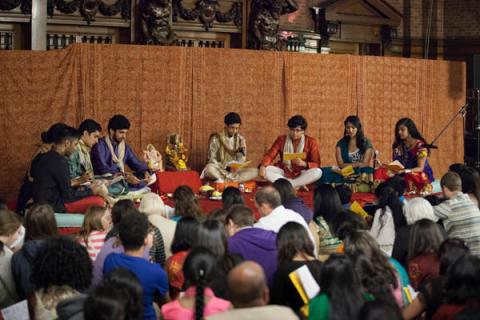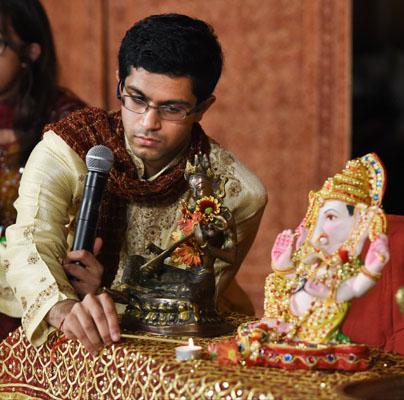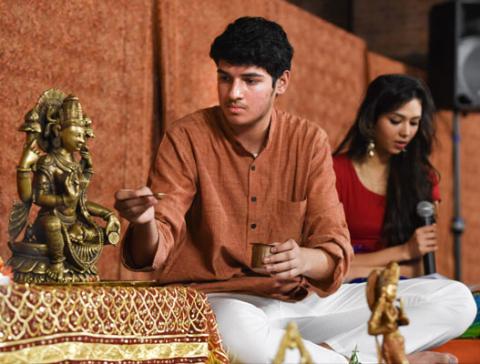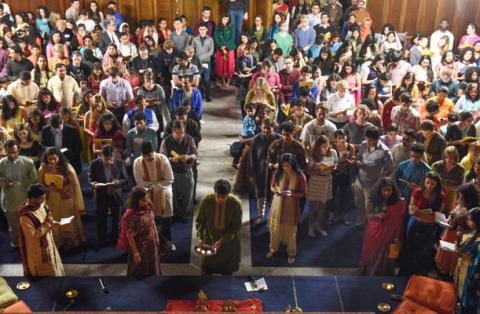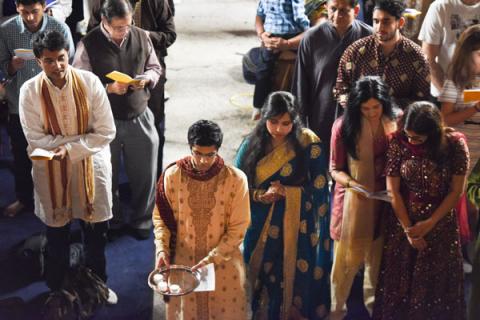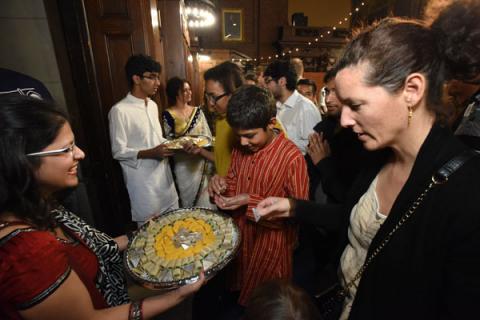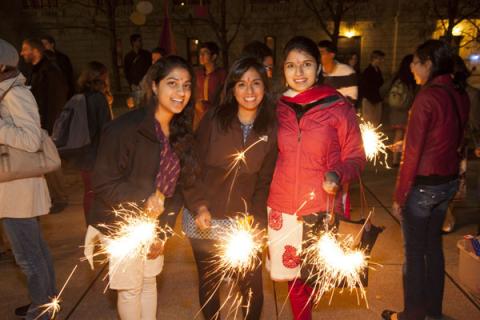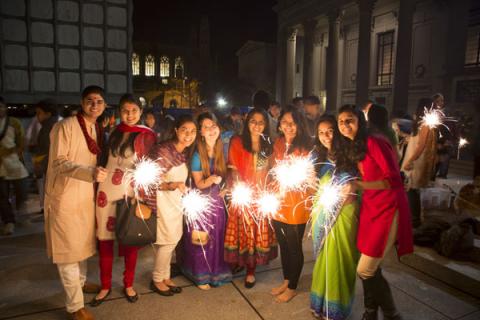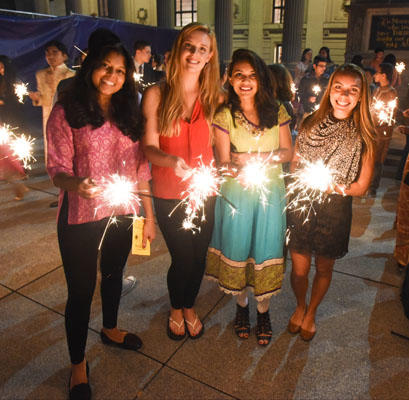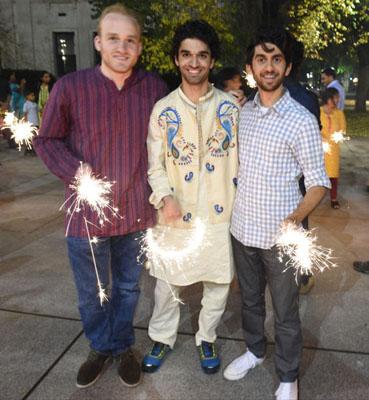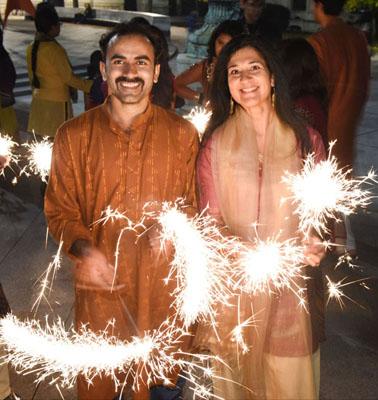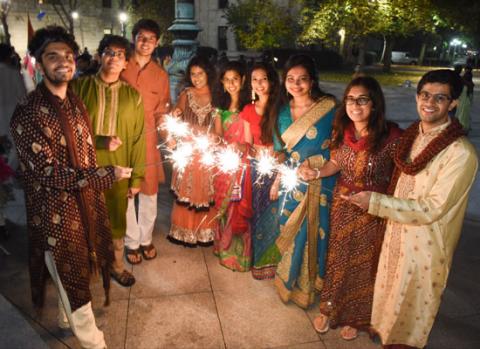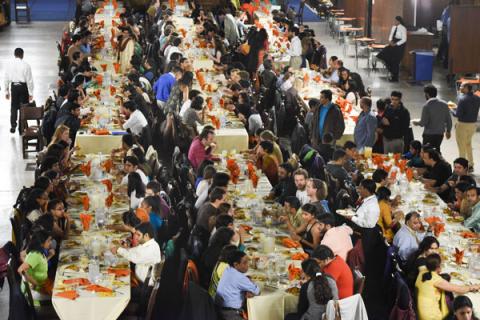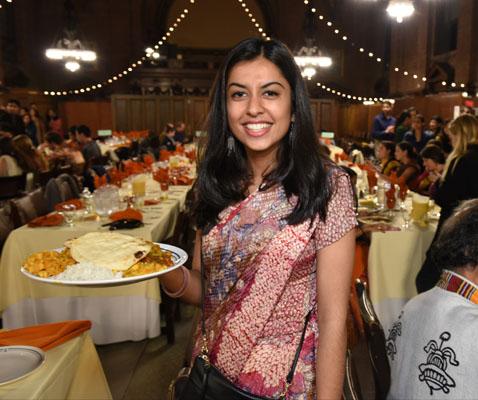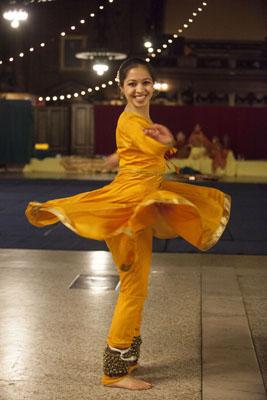Diwali (also known as Deepavali) is the Hindu Festival of Light. Diwali is associated with many mythological tales and family traditions. Typically occurring in late October or early November, it celebrates the triumph of good over evil, of light over darkness. On this new moon night across India families light rows of oil lamps (diyas/deepas) around the foundations and along the balconies of their dwellings. They dress in new clothes and go to the Temple or host worship services at home venerating Goddess Lakshmi, the patron deity of wealth and prosperity. They visit with neighbors, family and friends, bringing platters of sweets. The night sky glitters and rumbles from firecrackers. It is a time of fellowship, radiance, feasting and prayer – designed to spark the light and warmth within us while the days grow shorter and cooler.
Hindus believe that a spark of divinity resides within every soul marking a personal connection with the Creator. Prayers ignite that internal light, linking our individual selves with those who are special to us along with greater social and cosmological forces.
The words from the ancient Gayatri mantra speak to the power of divine light.
Oṃ bhūr bhuvaḥ svaḥ
tát savitúr váreṇiyaṃ
bhárgo devásya dhīmahi
dhíyo yó naḥ pracodáyāt
“May we meditate on that illumination pervading the earth, sky and heaven. May that brilliance inspire our intelligence.” (Trans. A.V. Srinivasan ©2014 The Bhagavad Gita)
